Is there something like Ruby's awesome_print in Go?
For example in Ruby you could write:
require 'ap'
x = {a:1,b:2} // also works for class
ap x
the output would be:
{
"a" => 1,
"b" => 2
}
closest thing that I could found is Printf("%#v", x)
